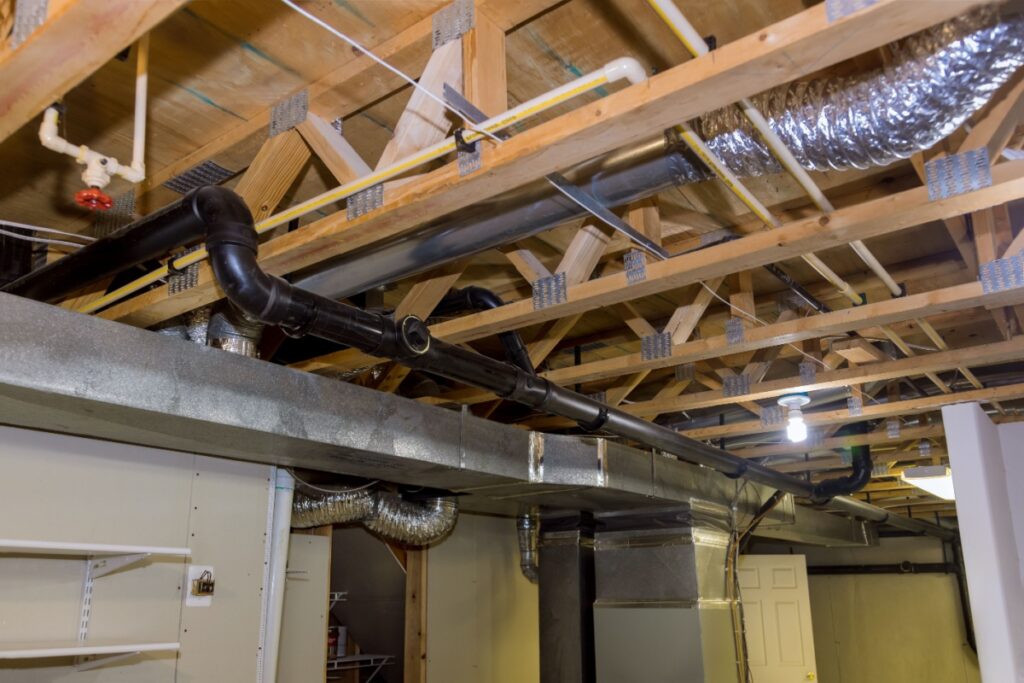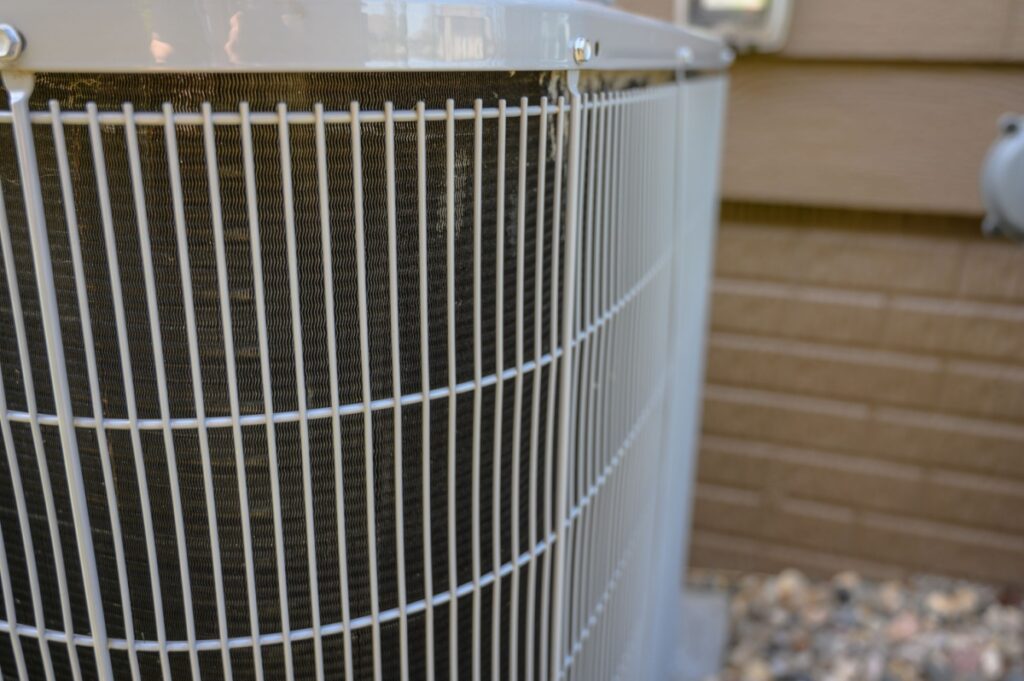–
In a previous article, we’ve explored signs that it is time for AC service in the Silver Spring and D.C. areas. Some problems, such as weird smells or strange noises, could signal that it’s time for AC repair. Other issues, like constant repairs or extreme electricity bills in the summer, suggest that it’s time for a new AC installation. (Don’t worry, we have financing options so that you can get your air conditioner replaced immediately and pay it off over time.)
We threw a lot of information at you in the previous blogs; articles chock-full of information gained from decades in the HVAC repair business. But we also understand you might be getting some information from other sources. We all know how unreliable the internet can be when it comes to getting correct advice regarding anything — heating and cooling topics being no exceptions.
Here are a few myths and misconceptions about air conditioning and AC service that you might have heard. As it turns out, there are quite a few!

Myth: Ceiling Fans Make an Air Conditioner Turn on Less Often
Much like the heat from a stove and the heat from a hot pepper are different, so is the cool from an air conditioner and a ceiling fan. The air conditioner is actually blowing cold air while a ceiling fan is blowing air over your skin and removing the heat from it.
It might seem like semantics, but it’s not. Here’s what it comes down to: fans don’t actually cool the air. In actuality, they warm it up a fraction of a degree because of the heat from their motor! The thermostat in your home isn’t cooled down by the blowing fan in the same way your skin is, so it’s going to tell the air conditioner to turn on when it reaches a certain temperature in the room — regardless of whether your ceiling fans are on.
Air conditioners will keep a room cool even if you’re not there, so there’s no harm in leaving the AC on even if you leave the house. But if you leave a room, make sure to turn the fans off to save electricity.
Myth: Get the Biggest Air Conditioner During AC Replacement
It’s understandable why this myth keeps cropping up. After all, it seems plausible that a bigger air conditioner will cool things down more quickly. So, when it comes time for new AC installation, you should probably upgrade to a bigger unit — right?
Again, this is a myth. An air conditioner should be matched to the size of the house, the square footage being cooled, and the efficiency of the ductwork design. AC units that are too big for the space won’t necessarily cool things down any faster, and they’ll waste energy due to their sheer size. When it comes time for an air conditioner replacement, we will make sure that you’re getting the right-size air conditioner for your home’s needs.
Myth: An Air Conditioner Is the Only Summer Cooling You Need
When spring arrives, ceiling fans and open windows are pretty much all you need. But when it gets to be the middle of summer, it’s time to turn on the air conditioner. So you’re done, right?
We’d like to suggest another step in your quest for the most comfortable temperature and the lowest utility bills: window dressing. While large, uncovered windows are an excellent way to let the heat in during winter, they’re doing the same thing in summer unless you cover the windows in some way and block the sun. White blinds can do a good job, as they reflect the heat back outside.
Myth: An Air Conditioner Only Cools the Air
When Willis Carrier invented the air conditioner, he did an excellent job naming it. He didn’t call it an “air cooler” or an “air coldifier.” He called it an air conditioner because his invention was about much more than merely cooling the air.
Yes — air from an air conditioner is colder — but it’s also conditioned to have less humidity. So when you walk into an air-conditioned building from the muggy outdoors, it’s more than just the cold nature of the air that’s helping. High humidity in your home is a good indication that something is wrong with your air conditioner and that it’s time for AC repair. If you notice that your air is cool but still feels clammy, be sure to call for AC service.
Myth: Overshoot the Temperature to Cool the House Faster
Here’s the scenario: You come home and find the house at 85 degrees. You want it at 75 degrees, so you keep pushing the button until you set the thermostat for 65 degrees. That’ll cool the house faster for sure!
While everyone wants this method to work, it doesn’t do anything to help cool the house any faster. The air conditioner will cycle on and off as much as it needs to get to a specific temperature. The laws of thermodynamics won’t let it reach that lower temperature any faster! All that will end up happening is you making the house too cold, which just wastes energy and might even make you uncomfortable until you hit “run program” or a scheduled temperature change occurs.
Myth: “I Don’t Need to Change My Air Filter”
Air filters in your HVAC unit are the first line of defense against dust and dirt moving through your home. While many people know that air filters are essential to a system, far too many think it’s okay to get them changed twice a year when we stop by for air conditioner maintenance.
Air filters need to be changed more often than every six months. Most manufacturers suggest changing them out every three months, and it’s a simple process. (We can even teach you how to do it). Failing to switch out old ones for new ones can strain the system and waste energy as the blower has to work harder to move the air.
Myth: Fins and Coils Don’t Need to Be Cleaned
AC evaporator coils and fins allow heat to pass from the system’s refrigerant into the air, just as condenser coils absorb heat from within the home. Layers of dust and grime can compromise this essential process of moving heat. If you never think to check on your coils, know that gunky substances can be costing you a decent chunk of change, all while taking a toll on your system’s efficiency. Contact a cooling specialist to come clean your air conditioner at the beginning of the warm season and check it periodically and perform maintenance, especially after storms or high winds.
Myth: You Should Close the Air Vents in Rooms You Don’t Use
It may seem like closing up vents in rooms you aren’t in all too often would conserve energy and ultimately reduce your heating and cooling costs. After all, it’s less square footage that your system is “conditioning” the air of, right?
Despite that logic, it’s a misconception that closing vents in unused rooms saves energy. Actually, it can waste more energy than operating your system normally would. Closing vents in individual rooms restricts air from entering the area — however, it pushes that excess air into other places in your home. The added pressure from closing a vent can cause air leaks in your system, resulting in long-term and unnecessary utility waste. Air leaks cause your system to work harder as it tries to make your home comfortable. Additionally, shutting vents may damage your AC or heater, leading to inefficient performance and costly repairs down the road.
Myth: It Doesn’t Matter Where the Thermostat Is in Your Home
This could be something you’ve never considered, but your thermostat placement can have a drastic effect on your cooling system’s energy efficiency. Obviously, it needs to be mounted in a location that lets you conveniently adjust as needed. However, the U.S. Department of Energy suggests a few more tips — it should be placed on an interior wall and away from direct sunlight, drafts, doorways, windows, and skylights. Additionally, furniture should not be placed below — let alone directly in front of — the thermostat.
Did You Believe Any of These Myths?
If you were a true believer in any of these myths and misconceptions, don’t be ashamed. Some of them have a tinge of logic to them even if they’re wrong, so it’s easy to see why the ideas proliferate.
But we’re not done yet! With air conditioners being such a major part of life during the summer, there are certainly more than these myths going around. In our next article, we discuss more pieces of false information that get around about cooling the air indoors.
We hope that you don’t have any trouble with your AC. Still, spring is a great time to have AC maintenance performed, so contact us for tune-ups throughout Silver Spring, D.C., and the surrounding areas today!









